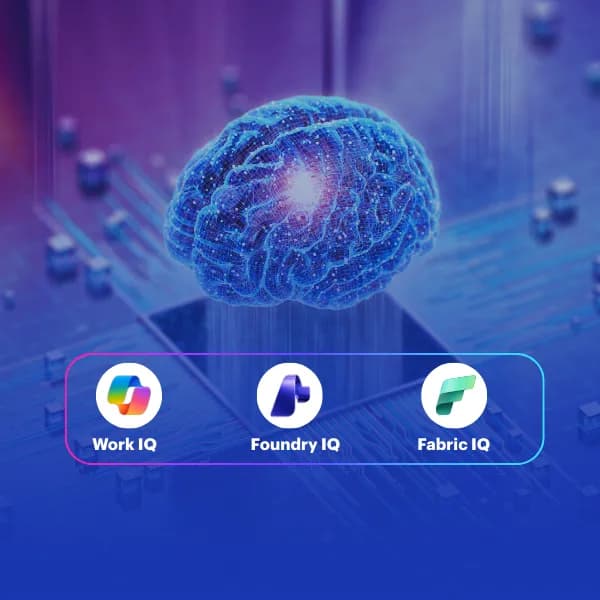In today’s dynamic business environment, agility is key. ERP projects are traditionally known to remain sub-optimal in achieving objectives and ROI within the targeted time and budget. Organizations looking to implement Microsoft Dynamics 365 Business Central can significantly benefit by following a structured approach and adopting a Hybrid-Agile methodology for the project. This method emphasizes rapid adoption, iterative improvements, and minimal disruption rather than extensive upfront audits or heavy customization. This guide outlines a comprehensive approach to implementation, ensuring that your organization not only adopts a modern ERP solution but also adapts seamlessly to new processes and technology.
1. Define Strategic Objectives and Prepare for Change
Clarify Your Vision
Start by outlining clear business objectives—whether it’s streamlining operations, reducing costs, or enhancing customer experiences. This strategic vision sets the stage for an agile, iterative approach where adjustments are made continuously as the solution is adopted.
Engage Stakeholders and Cross-Functional Teams
Early involvement of cross-functional teams is essential. Establish open lines of communication between internal departments and your implementation partner to foster collaboration, rapid decision-making, and ownership of the transformation process.
Prepare the Teams
Preparing for a successful project requires several preparatory steps.
- Ensure that the teams are well-trained on the Dynamics 365 Business Central standard product before starting the formal project activities. This ensures that the user teams are on the same page as the implementation team.
- Ensure that the Team clearly understands what a User Story is. They should be able to modify standard user stories and also be able to write new user stories.
- Ensure that the team members are trained to write Test Cases, understand how to prepare Test Dat And conduct System Testing. This is going to be one of the most important activities for key users once the sprints start. They should also know which systems are to be used for recording test results.
2. Embrace Agile Methodologies for Iterative Implementation
Sprint-Based Development
Rather than an exhaustive, upfront audit and the traditional Requirements Study approach (As-Is | To-Be), employ a Hybrid-Agile framework to guide the rollout:
- Iterative Sprints: Break the project into manageable sprints. Each sprint should focus on delivering a functional component, gathering feedback, and making necessary adjustments.
- Learning and Adaptation: Use each sprint as an opportunity to learn about the system’s capabilities and adjust workflows with minimal yet impactful customizations.
Agile Governance
Maintain regular stand-up meetings (daily Scrum) and sprint reviews to ensure that progress is on track, issues are resolved quickly, and insights are fed back into the process for continuous improvement.
3. Rigorous Data Preparation and Cleansing
Data Readiness Is Critical:
A successful implementation relies on clean, accurate, and well-organized data:
- Data Cleansing: Conduct thorough cleansing of existing data. Identify and remove duplicates, standardize data formats, and verify key datasets.
- Revalidation of Master Data: Reassess critical data elements such as the Chart of Accounts and master records. For organizations with multiple companies, including non-operational entities, a detailed review is essential to determine what data is relevant and accurate.
- Migration Strategy: Develop a phased data migration plan that prioritizes critical information and minimizes the risk of data loss or corruption during the transition.
4. Cloud Migration and Infrastructure Assessment
Transitioning to the Cloud:
For businesses moving to cloud-based ERP, the shift involves more than just a technical migration:
- Infrastructure Evaluation: Assess your current IT infrastructure and determine the requirements for a seamless cloud transition. This includes evaluating network bandwidth, hardware compatibility, and connectivity.
- Security and Access Management: Reexamine your security protocols and access rights. Cloud environments require a fresh approach to data security, ensuring that sensitive information is protected while providing flexible, role-based access to users.
- Scalability and Resilience: Plan for future growth by ensuring that your cloud infrastructure is scalable, resilient, and aligned with your business continuity plans.
5. User Adoption and Change Management
Empower Your Workforce:
The most sophisticated system will fall short if users are not prepared to adopt it:
- Training Programs: Develop continuous, role-specific training modules that evolve with each sprint. This on-demand learning approach helps users build competence gradually while reducing resistance.
- Change Management Strategy: Implement a robust change management plan that includes clear communication, stakeholder engagement, and proactive support channels. Establish a dedicated point of contact for addressing user concerns and facilitating smooth transitions.
- Feedback Mechanisms: Create channels for ongoing feedback to identify adoption challenges early and address them promptly. This ensures that users feel supported throughout the transformation process.
6. Comprehensive Testing, Go-Live, and Continuous Improvement
Ensure System Readiness:
Before going live, a rigorous testing phase is essential:
- End-to-End Testing: Perform comprehensive tests of all system integrations, customizations, and data migrations. Engage cross-functional teams to validate that the system meets business requirements.
- Phased Go-Live: Adopt a phased rollout strategy, starting with a pilot in a controlled environment before full-scale deployment. This minimizes risk and allows for adjustments based on real-world performance.
- Post-Go-Live Support: Establish continuous monitoring and support systems. Use post-deployment sprints to refine functionalities, resolve issues, and adapt to evolving business needs.
Implementing D365 Business Central successfully demands more than just a technical upgrade—it requires an agile, well-coordinated strategy that addresses data integrity, cloud migration, and user adoption. By setting clear objectives, engaging cross-functional teams, and continuously refining your approach through iterative sprints, your organization can navigate the complexities of ERP implementation. With careful data preparation, robust change management, and a keen focus on cloud infrastructure and security, you can unlock the full potential of D365 Business Central Implementation and drive lasting business transformation.





